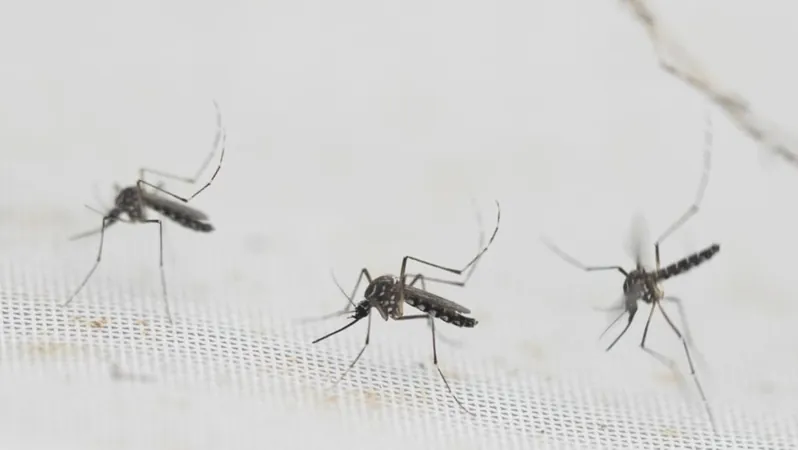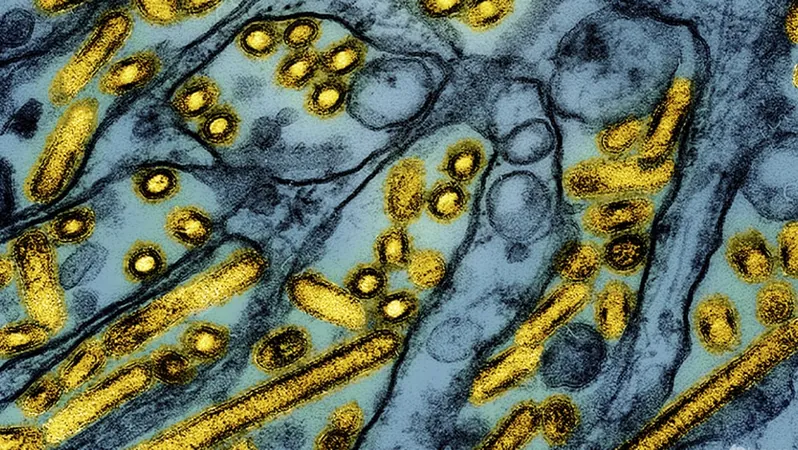
Singapore’s Revolutionary Mosquito Control Program: How Wolbachia Could Eradicate Dengue by 2026!
2024-11-25
Author: Wei Ling
SINGAPORE: An Innovative Approach to Combat Dengue Fever
In a significant move to combat dengue fever, the Singaporean government has announced that the release of Wolbachia-carrying mosquitoes will reach 50% of households in the country by 2026. This ambitious initiative, revealed by Minister for Sustainability and the Environment Grace Fu on November 25, 2023, aims to cover around 800,000 residences, especially in areas prone to severe dengue outbreaks.
Project Wolbachia: Progress Since 2016
Since launching Project Wolbachia in 2016, Singapore has progressively implemented these mosquito releases, using innovative biotechnology to effectively reduce the population of the Aedes aegypti mosquitoes that transmit the dengue virus. The project involves releasing male mosquitoes infected with the Wolbachia bacteria to mate with wild females; however, their offspring do not hatch, significantly diminishing future mosquito populations.
The Benefits of Wolbachia Mosquitoes
Interestingly, the male Wolbachia mosquitoes are harmless—they do not bite and feed exclusively on plant nectar, which means they do not pose any risk of disease transmission. The recent findings from a comprehensive multi-site field study conducted in 2022 revealed that residents in areas where these mosquitoes were released faced a staggering 75% reduction in dengue infections. This is thanks to an impressive 80-90% decrease in the Aedes mosquito population.
Community Impact and Spillover Effect
Fu emphasized that even neighboring communities near release sites witnessed a 45% decrease in dengue cases, highlighting a beneficial "spillover effect" of this program. Remarkably, despite facing potential surges in dengue cases in the upcoming years, the numbers have remained subdued, largely credited to sustained community efforts and the introduction of Wolbachia technology.
Historical Context of Dengue Prevention
Over the past six decades, dengue prevention initiatives have drastically reduced the likelihood of a first-time dengue infection in Singaporeans—current citizens are ten times less likely to contract the disease compared to the 1960s, according to Fu. However, there is concern regarding the low immunity among the population, leaving them vulnerable to outbreaks, especially given the conducive breeding environment for mosquitoes.
Current Situation and Future Plans
As of mid-November 2024, Singapore reported 13,057 dengue cases, a stark rise from 9,949 in 2023 and 32,173 in the previous year. Fu noted that advancements in mosquito behavior research have shaped deployment strategies, and the integration of automation into production processes has multiplied their operational capacity significantly.
Expansion of the Program
Singapore is not stopping here; in October, the program expanded to five additional neighborhoods: Serangoon Central, Serangoon North, Jurong East, Jurong West, and an existing site in Hougang. Currently covering over 520,000 households (approximately 35% of Singapore), this number is set to rise to 580,000 by the early months of 2025.
Strengthening Production Capabilities
To maintain the momentum, the government plans to bolster its mosquito production capabilities by upgrading existing facilities and establishing a new one. The aim is not just to manage populations but also to pilot Wolbachia technology in areas with high dengue transmission, potentially transforming it into a crucial tool for managing outbreaks.
Research Insights and Future Outlook
As NEA’s research indicates, achieving significant reductions in mosquito numbers typically requires three months of consistent releases. While immediate effects on dengue transmission may not be visible, the strategic application of Wolbachia could significantly restrict the growth of dengue clusters, paving the way for a brighter, dengue-free future in Singapore.
Conclusion: A Global Precedent for Dengue Control?
Stay tuned—this impressive public health initiative may very well set a precedent for dengue control worldwide!


 Brasil (PT)
Brasil (PT)
 Canada (EN)
Canada (EN)
 Chile (ES)
Chile (ES)
 España (ES)
España (ES)
 France (FR)
France (FR)
 Hong Kong (EN)
Hong Kong (EN)
 Italia (IT)
Italia (IT)
 日本 (JA)
日本 (JA)
 Magyarország (HU)
Magyarország (HU)
 Norge (NO)
Norge (NO)
 Polska (PL)
Polska (PL)
 Schweiz (DE)
Schweiz (DE)
 Singapore (EN)
Singapore (EN)
 Sverige (SV)
Sverige (SV)
 Suomi (FI)
Suomi (FI)
 Türkiye (TR)
Türkiye (TR)